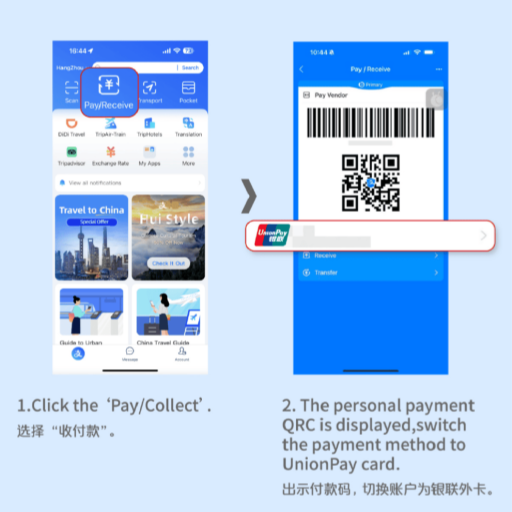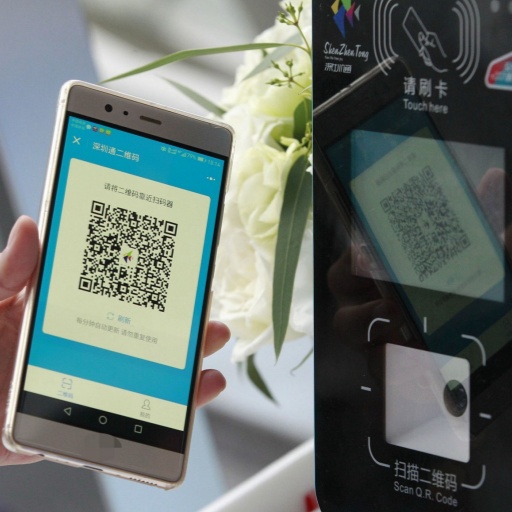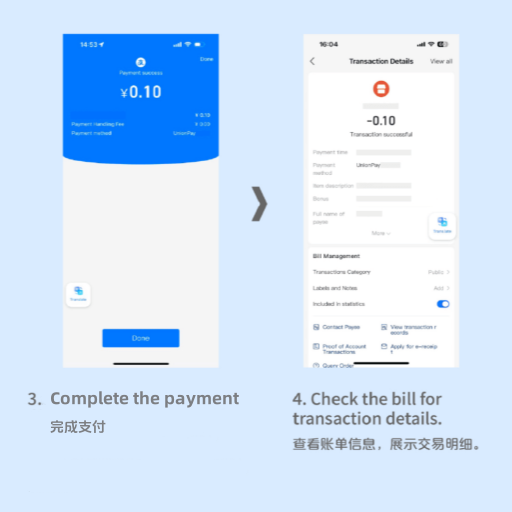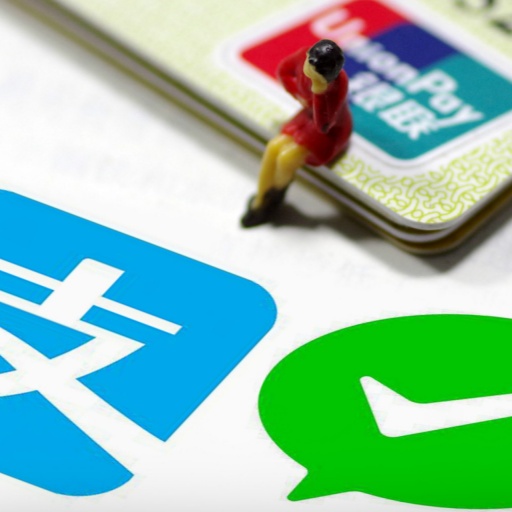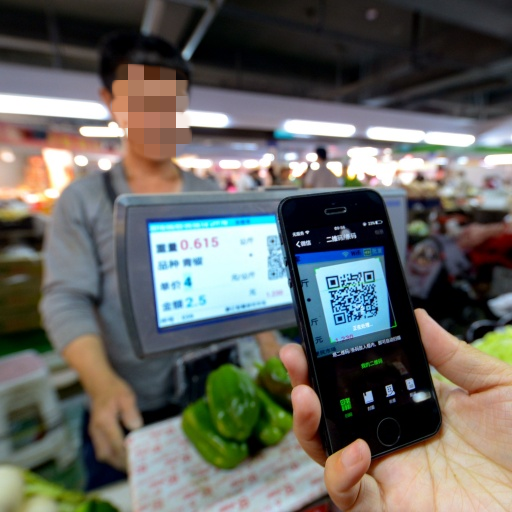If you’re traveling to China in 2025, getting around without mobile payment can feel impossible. From metro rides to milk tea stalls, everything runs on apps—and Alipay is one of the biggest players. For foreigners, the good news is that Alipay now fully supports international visitors. You don’t need a Chinese bank account or local SIM to get started. All it takes is your passport and a Visa or Mastercard. Whether you’re here for two weeks or two years, setting up Alipay early will save you time, stress, and awkward moments at the checkout counter. This guide breaks down everything you need to know—from downloading the app to paying like a local in restaurants, taxis, and even tourist spots. If you’re looking for the easiest way to handle money in China, this is it. Here's how to make Alipay for foreigners work for you—fast, simple, and with no surprises.
What Is Alipay and Why Do Foreigners Need It in China?
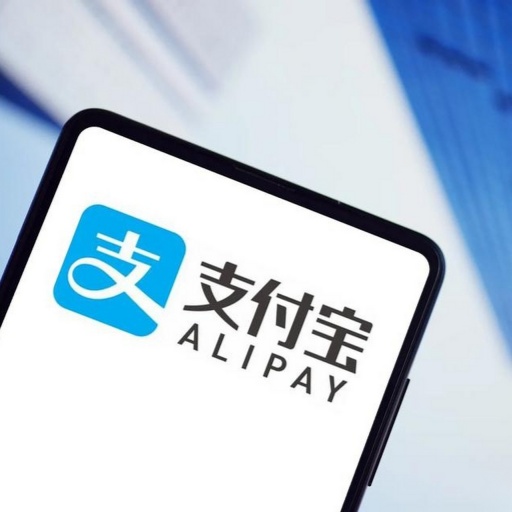
Alipay
Understand the role of Alipay in China
In China, cash is practically outdated. Most locals swipe their phones, not cards or bills. Alipay is one of the two main digital wallets everyone uses—it’s accepted almost everywhere, from street food stalls to high-end boutiques. Even public restrooms sometimes require QR code access linked to Alipay. As a foreigner, not having it means you might struggle to buy coffee, take a subway ride, or pay for hotel extras.
This mobile payment app, developed by Alibaba, goes far beyond just money transfers. It handles everything from utility bills to hospital registrations. For foreigners visiting or living in China, Alipay acts as your entry ticket to the country’s digital-first economy. Without it, you'd be forced to carry cash everywhere, which is both inconvenient and unusual in major Chinese cities like Shanghai or Guangzhou.
So why is Alipay for foreigners such a hot topic in 2025? Because it’s now easier than ever to set it up with a passport and foreign card. Even short-term travelers can pay like locals. The app also offers English-language settings and better international customer support. Simply put, if you want a smooth China trip, get Alipay early—it saves time, hassle, and awkward situations.
Want to know what Alipay actually is and how it works? Check What’s Alipay? Everything You Need to Know 2025
How Alipay Works Without a Chinese Bank Account
Foreigners no longer need a Chinese bank account to use Alipay. Instead, the app offers a feature called “Tour Pass” that accepts international credit or debit cards. Once linked, users can pre-load fixed amounts—like ¥100, ¥500, or ¥1000—and spend just like locals do.
You’ll still need to verify your identity using a passport, and you’ll be asked to provide a valid mobile number (foreign numbers are fine). After that, Alipay generates a QR code for in-store payments, just like it does for Chinese users.
Keep in mind that you can’t withdraw funds or transfer money to other users without a Chinese bank account. However, for everyday payments like transport, food, or shopping, the Tour Pass offers a secure and convenient workaround. It’s ideal for short-term stays and works in most major cities across China.
Compare Alipay with WeChat Pay
Both Alipay and WeChat Pay dominate China’s mobile payment scene. Locals often use both, switching between the two based on habit or offers. But for foreigners, the differences matter. First, Alipay generally provides a smoother setup process if you’re using an international phone number and a foreign bank card.
Second, Alipay offers a standalone “Tour Pass” for short stays. WeChat Pay doesn’t currently have an equivalent that works as reliably. Also, Alipay's interface is more intuitive for non-Chinese users. It offers more English instructions and visual cues. WeChat is still catching up in that area, especially in smaller cities where network access and app language defaults can be unpredictable.
That said, WeChat Pay has its strengths. It's integrated with the popular WeChat app, which many locals use for chatting, shopping, and even booking medical appointments. But from a pure payment standpoint, especially if you’re only in China for a few weeks, Alipay for foreigners is a better bet. You can always add WeChat Pay later if needed.
After sorting out how to pay, it’s time to check how much you’ll actually spend — Is China Expensive to Visit.
How to Quickly Set Up Alipay as a Foreigner?
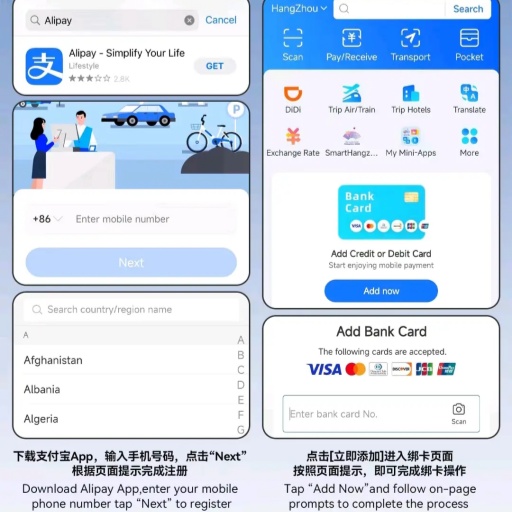
How to Quickly Set Up Alipay as a Foreigner?
Step 1 – Download the Alipay app from a trusted store
Use App Store, Google Play, or Alipay’s official site. Install the version with English support. Once opened, switch the interface to English. Grant basic permissions like location and camera—they’re needed for payments.
Step 2 – Sign up with your foreign phone number
Tap “Sign Up,” change the country code, and enter your mobile number. Input the SMS code you receive. Then set a password. This number will be your login ID, so keep it active.
Step 3 – Link your credit or debit card
Go to “Me” > “Bank Cards” > “Add Card.” Input details for your Visa/Mastercard. Some JCB cards also work. You may be charged a small fee for verification—usually refunded.
Step 4 – Verify your identity with a passport
Alipay will ask for ID to unlock all features. Go to “Real-name verification,” upload a photo of your passport, then take a quick selfie. This unlocks top-ups, Tour Pass, and smooth daily use.
What Should Foreigners Know About Using Alipay in Daily Life?
- Alipay Payment Step1-2
- Scan the Alipay QR code
- Alipay Payment Step3-4
Check where Alipay is accepted
Alipay for foreigners works almost everywhere in urban China. You can pay for metro rides, taxis, snacks, museum tickets, and even street food—all with just your phone. Shops, restaurants, and convenience stores in tourist areas almost always scan QR codes. Hotels that accept foreigners also typically take Alipay. Even local wet markets and souvenir stalls might surprise you. Just look for the Alipay logo or ask directly—locals are used to helping.
However, rural towns or small family-run businesses might still prefer cash. In these cases, it’s handy to carry some RMB as backup. Still, Alipay covers 95% of situations you’ll face in big cities like Shanghai or Chengdu. With China’s rapid shift to cashless payments, carrying only physical money often limits your options. That’s why setting up Alipay in advance makes your trip smoother.
Don’t forget: always keep your phone charged and internet on. If you’re offline, the app won’t scan. Most cafes and malls offer free Wi-Fi, and prepaid SIMs are easy to find. With Alipay for foreigners now more accessible than ever, navigating daily life in China becomes surprisingly stress-free.
Recharge and manage your balance
Tourists often ask: how do I reload funds in Alipay? If you’re using the Tour Pass, you can top up fixed amounts like ¥100, ¥200, or ¥500 from your international card. Go to the “Tour Pass” section in the app, click “Top up,” choose the amount, and confirm payment. It usually reflects instantly. However, you can’t top it up endlessly—it caps at ¥10,000 within 90 days.
To check your balance, tap “Me” → “Tour Pass.” There, you’ll also find transaction records. If you switch cards or run into payment errors, simply unlink and rebind under “Bank Cards.” Alipay doesn’t charge fees for most transactions, but your home bank might, so check ahead.
It’s smart to plan your spending. You can’t withdraw unused money, and any balance expires after 90 days. But don’t worry—most users easily spend the amount on food, transit, or shopping. Tour Pass is prepaid, so it’s secure and budget-friendly. It gives you local flexibility without needing a Chinese bank account.
Not sure if your card will work in China? Discover Alipay Tour Card: The Foreign Traveler’s Key to Cashless China
Use Alipay safely as a foreign visitor
Alipay for foreigners comes with solid built-in security—but it’s good to know your options. Start by setting a strong password and enabling two-step verification. Use email or SMS alerts for any payment activity. Go to “Settings” → “Security Center” for customization. You can also enable Face ID or fingerprint login if your phone supports it.
Avoid clicking unknown links or QR codes. If someone sends you a payment request in a market or café, always check the name before confirming. Scam attempts are rare—but awareness helps. Also, don’t share screenshots of your payment page on public Wi-Fi.
Lost your phone? Stay calm. You can log in on another device or desktop and freeze your account under “Security Center.” Or call Alipay’s English helpline for immediate support. With these safety measures in place, Alipay for foreigners becomes a worry-free tool for daily life in China.If you're still unsure whether Alipay is safe, check out this guide. It breaks down common Alipay scams and gives you practical tips on how to avoid them.
What If Alipay Doesn’t Work for You?
- Alipay and Wechat
- Use WeChat to scan the merchant’s QR code
Try common troubleshooting steps
Sometimes, Alipay for foreigners doesn’t work right away. That’s normal—don’t panic. One common issue is not receiving the SMS code. In that case, double-check your phone number format. It must include the correct country code. Also, make sure your SIM allows international messages. If needed, restart your phone and try again.
Another issue is card rejection. Some international cards don’t pass the Alipay check. Try another Visa or Mastercard. Prepaid travel cards often don’t work. If it still fails, contact your bank to authorize international online payments. Some banks auto-block these transactions unless you manually enable them.
Also, make sure your Alipay app is the international version, not the one meant for Chinese residents. You can find it on App Store or Google Play by searching “Alipay - Simplify Your Life.” It has blue and white icons. If all else fails, reinstall the app and start fresh. Don’t worry—plenty of travelers face hiccups. Most issues can be solved within minutes.
Explore alternative apps like WeChat Pay
If Alipay just won’t work, WeChat Pay is a solid backup. It’s another major mobile payment system in China, widely accepted in shops, restaurants, and transport. The process is similar—download the WeChat app, register with a foreign number, link a card, and complete ID verification using your passport.
WeChat Pay has its own wallet and payment QR code. Many users say it feels slightly more intuitive. It’s also deeply integrated into the WeChat ecosystem, so you can chat, book services, and pay—all in one app. You’ll find it especially useful for ordering food, booking high-speed train tickets, or sending money to local friends.
However, not all foreigners get access to full features right away. Some require WeBank verification or a Chinese bank card for full access. Still, for basic spending during short trips, WeChat Pay usually gets the job done. Between Alipay for foreigners and WeChat Pay, you’ll rarely need to carry cash in urban China anymore.
If you want to learn more about how to use WeChat QR Code in China, you can check out this article.
Frequently Asked Questions (FAQs)
Q:Can foreigners link international credit cards to Alipay?
A:Yes, many foreign credit cards can be added to Alipay. That said, it depends on the payment type. Personal QR codes usually don’t support foreign cards. Merchant QR codes often do—but not always. Some merchants may restrict payment types, so be ready with a backup.
Q:How do I add an international card to Alipay?
A:Head to the “My” section in the Alipay app, select “Bank Cards,” and tap “Add Card.” Then enter your card info. Most Visa and Mastercard options work, as long as they’re enabled for international use.
Q: What types of Alipay QR codes exist in China?
A:There are mainly two types:
• Personal codes (for individuals, often don’t support foreign cards)
• Merchant codes (used in shops and stores, often foreign-card friendly)
Q:Why doesn’t my foreign card work with some QR codes?
A:Some QR codes—especially personal ones—don’t allow foreign cards due to local rules about credit card payments. That’s why the same card might work in one place but not another.
Q:Is a Chinese bank account necessary to use Alipay?
A:No, it’s optional. You can still use Alipay if you only link a foreign card. But, some features (like topping up your balance) will be limited without a local account.
Q:What should I do if my card won’t go through?
A:First, try another payment QR code—some shops offer both personal and merchant options. If that still doesn’t work, ask the cashier if they accept foreign cards through WeChat Pay or another method.
Q:Can I get cash from Alipay if I need it?
A:Not really. Alipay isn’t built for cash withdrawals, especially with foreign accounts. You’ll need a Chinese bank account to transfer out balance. Best to use Alipay directly for purchases.
Q: Is it possible to get a refund if I paid by mistake?
A:Yes, but it depends on the merchant. You’ll need to contact the store directly. Alipay doesn’t process refunds themselves unless it’s a system error. Always save your receipt or payment record.
Q:Can I shop overseas with Alipay?
A:Some global websites and shops now accept Alipay—but it’s still mostly China-focused. Check the checkout options before assuming it’ll work abroad.
Q:Are there any fees when using an international card with Alipay?
A:Alipay doesn’t charge fees directly, but your bank might. Most foreign banks apply a foreign transaction fee (typically around 1–3%). Always check your card’s policy first.
Q:How do I add funds to Alipay without a Chinese bank?
A:You can’t top up Alipay balance directly with a foreign card. Instead:Use a third-party service that transfers funds into your account.Or Ask a local friend to send you balance in exchange for cash or bank transfer.
Q: Can I use Alipay for taxis and metro rides in China?
A:Absolutely. In most cities, Alipay is accepted by taxis, buses, and metro lines. Just scan the QR code inside the taxi or at metro station gates—quick and easy.
Q:Can I connect my card to my child’s Alipay account?
A:Yes, Alipay lets you create a family account. You can assign a payment limit and monitor your child’s spending from your phone. Great for safe use while traveling as a family.
Q: What if I can’t scan a QR code on my own phone?
A:Easy fix: take a screenshot of the code, open Alipay, then tap the album icon inside the QR scanner. Choose the saved image, and Alipay will read it like a scan.
Want more China travel ideas? Check out our city guides on Beijing, Shanghai, Guangzhou, and Chengdu.
